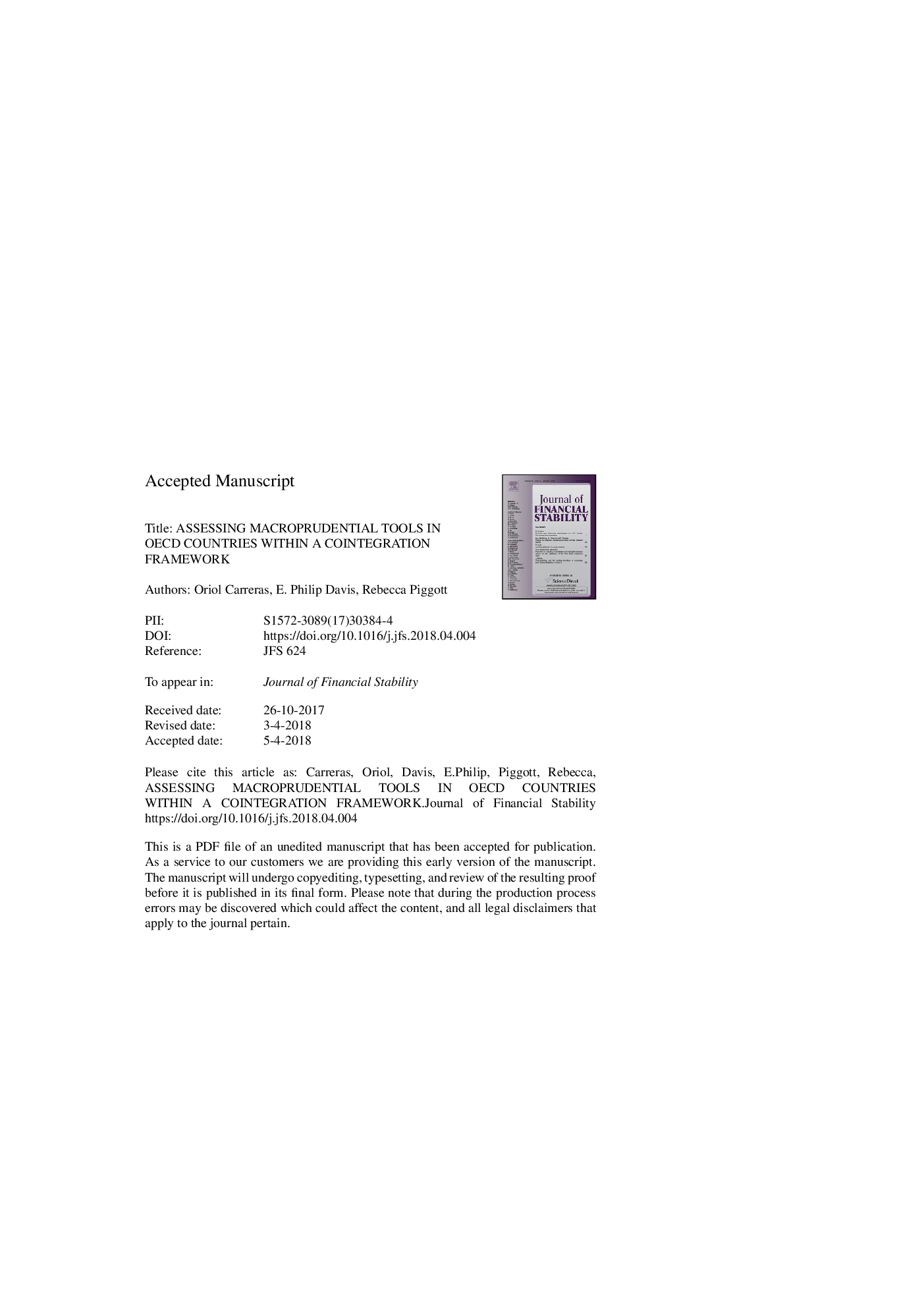| Article ID | Journal | Published Year | Pages | File Type |
|---|---|---|---|---|
| 7408980 | Journal of Financial Stability | 2018 | 50 Pages |
Abstract
Whereas macroprudential policy has come to the fore since the Global Financial Crisis, with many regulators being given responsibility for such policy, the appropriate tools and the effectiveness of such tools remain open questions. We suggest that existing work on effectiveness of macroprudential policy may be vulnerable to bias due to omission of long run cointegration effects. This paper seeks to offer a fresh baseline for work in this area by adopting a cointegration framework which is robust to a variety of alternative techniques and compares favourably with non-cointegrated alternatives. We assess the impact of typical macroprudential policy interventions on house price and household credit growth in up to 19 OECD countries, using three datasets from the IMF and BIS, thus giving both a wider range of control variables and broader coverage of instruments than in most extant work. We find evidence that macroprudential polices remain effective in both short- and long-run at curbing house price and household credit growth even within a cointegration framework, albeit some tools are more effective than others. These include, in particular, taxes on financial institutions, general capital requirements, strict loan-to-value ratios and debt-to-income ratio limits.
Related Topics
Social Sciences and Humanities
Economics, Econometrics and Finance
Economics, Econometrics and Finance (General)
Authors
Oriol Carreras, E. Philip Davis, Rebecca Piggott,
